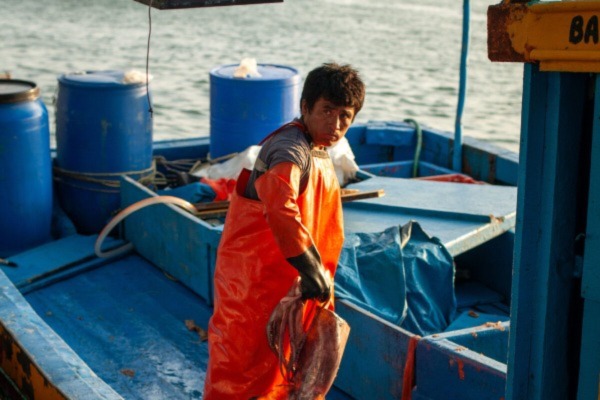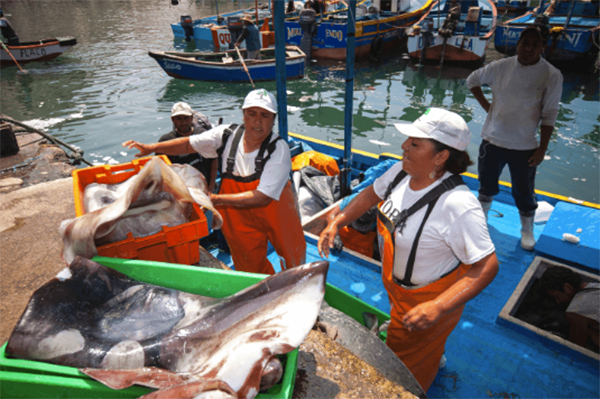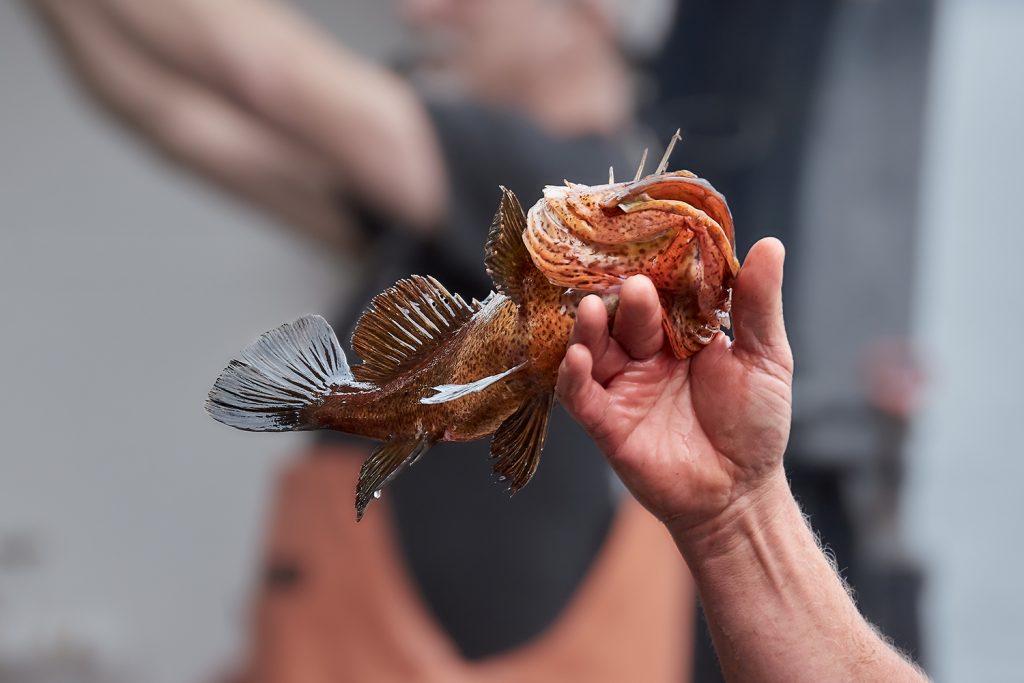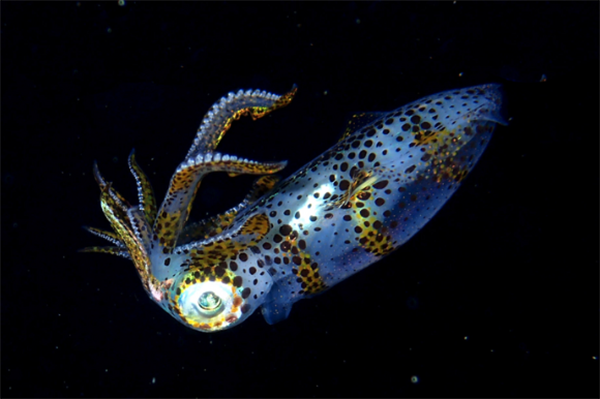Participation by traditionally excluded communities increases science-based fisheries management, study concludes

Organizing traditionally excluded artisanal squid fishers and processors from coastal states improves science-based fisheries management on the high seas, a new study has found.
The study, which was published in Ocean and Coastal Management, was conducted by the Sustainable Fisheries Partnership (SFP) – a United States-based non-profit that operates globally to rebuild depleted fish stocks and reduce the environmental and social impacts of fishing and fish farming.
The research analyzed the formation of CALAMASUR (Committee for the Sustainable Management of the Jumbo Flying Squid in the South Pacific) and its engagement over the past five years in the South Pacific Regional Fisheries Management Organization (SPRFMO).
The study found that participatory governance schemes, as demonstrated by the efforts implemented by CALAMASUR with the SPRFMO, can result in better-informed and more equitable outcomes for artisanal and small-scale fisheries. Specifically, it can enable their participation in Regional Fisheries Management Organizations (RFMOs), and by doing so, leads RFMOs to become more sustainable, evidence-based and equitable fisheries management.
“Fisheries policy and management impact the livelihoods of entire coastal communities,” said Enrique Alonso, global fisheries director at SFP and a principal researcher in the study. “Yet artisanal and small-scale fishers are rarely engaged in decision-making. This is especially the case in managing the high seas. As a result, fisheries are typically managed without the interests of artisanal and small-scale producers, even when they are the largest stakeholders.”
CALAMASUR, an alliance formed in 2018, comprises prominent artisanal fishing cooperatives and squid processors from Chile, Peru, Ecuador and Mexico. It emerged following a workshop facilitated by SFP, in which participants learned about the SPRFMO and its crucial role in ensuring the sustainability of the jumbo flying squid fishery on the high seas and combating IUU fishing (illegal, unreported and unregulated fishing).
This fishery, recognized as the largest invertebrate fishery globally, operates within the exclusive economic zones (EEZs) of Chile, Peru and Ecuador, expanding into international waters along the South Pacific Ocean, where the SPRFMO manages it.
Report: Ocean warming may intensify IUU fishing and threaten global security
“When the artisanal squid fishers and processors learned about the RFMO process and how to engage, they knew they needed to have a voice and organize if they wanted a fair playing field,” said Alonso. “This is the first time artisanal fishers and processors have strategically mobilized and engaged at a scale to achieve policy results in a squid RFMO. We hope this can be an example for other communities around the world.”
The study found that CALAMASUR was a “critical agent” in driving attention to the squid fishery and advancing key improvement areas and priorities for management. Before CALAMASUR’s participation, there had been reportedly little work by the SPRFMO on squid.
During the period analyzed (spanning from 2018 to 2022), the study found that CALAMASUR had the greatest impact in driving delegates’ attention to issues related to compliance and science for management, and was “instrumental in advancing the discussion about critical issues such as effort limitations and increasing on-board observers.”
One of CALAMASUR’s keys to success was adopting a proactive approach in SPRFMO Science and Commission meetings, not only presenting position statements but also proactively developing technical and scientific proposals as an official observer.
“CALAMASUR shows that adequate organization and leadership, coupled with effective engagement by artisanal fishers and processors, can contribute positively to improve fishery management,” said Alonso. “RFMOs need to enable participation by artisanal and small-scale fisheries if they want to achieve their mandates and produce good policy and management.”
Overall, findings indicate that CALAMASUR was “instrumental” in triggering proposals by progressive national delegations, such as the European Union and Ecuador, and in garnering support for fisheries improvements by other delegations such as Peru and China, whose engagement has been slower.
Now that you've reached the end of the article ...
… please consider supporting GSA’s mission to advance responsible seafood practices through education, advocacy and third-party assurances. The Advocate aims to document the evolution of responsible seafood practices and share the expansive knowledge of our vast network of contributors.
By becoming a Global Seafood Alliance member, you’re ensuring that all of the pre-competitive work we do through member benefits, resources and events can continue. Individual membership costs just $50 a year.
Not a GSA member? Join us.
Author
Tagged With
Related Posts

Fisheries
Peru enables 930 artisanal fishing vessels to access mahimahi, squid
Peru last week issued a decree to enable fish-harvester cooperatives to legally register for its mahimahi and jumbo flying squid fisheries.

Fisheries
How artisanal fisheries can challenge typical parameters of success
Artisanal fisheries provide nutrition to millions while treading lightly on ocean health and biodiversity, but support is often a struggle.

Innovation & Investment
Could squid aquaculture fill the gap from declining cephalopod stocks in Japan?
With declining squid populations, researchers in Japan have developed the first aquaculture system with potential for commercialization.

Fisheries
Study: Squid fishing mostly conducted in unregulated waters
Squid fishing vessels fished largely in unregulated areas, presenting challenges for sustainability, a new international study finds.



